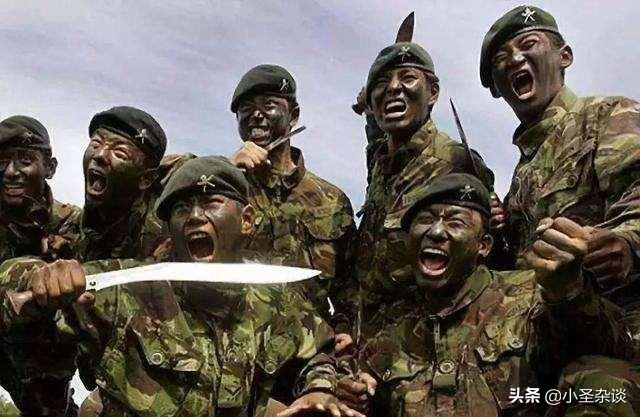
Gurkha mercenaries
When it comes to the ancient and dangerous profession of mercenaries, everyone must be very unfamiliar, after all, no one will risk their lives to earn money unless they have to (of course, it is not excluded that they will become mercenaries because of their hobbies). However, in some war-torn areas or places with poor economic development, becoming a mercenary is the only way to support a family, although it is likely to die on the battlefield, but many people can only live a "knife licking blood" life without hesitation. The most direct example is the mercenaries in the Middle East and North Africa, whose purpose is to earn money, and whoever gives more money will fight for whom. In addition, in southern Asia there is a region dedicated to the people who make a living as mercenaries, namely the Gurkhas from the west of Kathmandu, Nepal. To date, the Gurkha mercenaries are one of the most famous foreign mercenary groups in the world, known for their discipline, hard-working and combat prowess.
Gurkha mercenaries
The Gurkhas are a mountain minority in Nepal (80% of Nepal is mountainous), tall but athletic, agile, and perennial mountain life has given them the ability to endure hardships and be brave and good at war from an early age. In terms of national custom, they especially like to wear the "Gogol machete", which is said to see blood once it is pulled out, which has become the iconic equipment of Gurkha mercenaries. So what is it that led the Gurkhas to develop a collective tradition of being mercenaries?
Gurkha mercenaries of the Indian army
It turns out that Nepal is already one of the poorest countries in the world, with a per capita annual income of only $240, let alone the Gurkhas who live in the mountains and earn a living from farming and hunting. Chronic poverty made the Gurkhas desperate to "go out" to improve their lives, and the british, Indians, and Singapore paid them generously that they could not refuse (for example, the British Gurkha mercenaries paid $8,500 a year). At the same time, high income naturally means an increase in the value of identity, so Gorkha mercenaries will be respected and welcomed like princes every time they return, and they are also very popular blind dates in the village. High income + popularity with girls, as well as "the passing of the old mercenary", led to a tradition of Gurkhas as mercenaries (Gurkha mercenaries are an important source of foreign exchange in Nepal).
Gurkha mercenaries in Singapore
Thankfully, the Gurkha mercenaries are not as lawless and indiscriminate as some mercenaries who "only recognize money and do not recognize people", they will only participate in regular mercenary units formed by foreign governments and carry out regular military tasks. Because Gurkha mercenaries are very loyal to their employers, are not afraid of danger on the battlefield, and are good at carrying out offensive operations, countries including Britain, India, Singapore and other countries have a tradition of recruiting Gurkha mercenaries (India recruits the most, absorbing more than 2,000 people per year; This is followed by the UK with 200-300 people).
Pla
It is understood that over the past 150 years, the Gurkhas have participated in almost all conflicts related to Britain or India, and have also participated in UN peacekeeping operations on many occasions. Before the return of Hong Kong in 1997, British Gurkha mercenaries were also stationed in Hong Kong for a long time, known as the "fist unit" of the British army in Hong Kong. In addition, Gurkha mercenaries also fought with the People's Liberation Army: in 1962, the Indian army tried to rely on the strong Gurkha mercenary force to reverse the situation, and as a result, the Tibetan 419 unit of the Other People's Liberation Army was crushed (which shows that even the strongest opponents are only paper tigers in front of the PLA).
This article is an exclusive original article, please contact the authorization for reprinting, otherwise legal responsibility will be pursued!